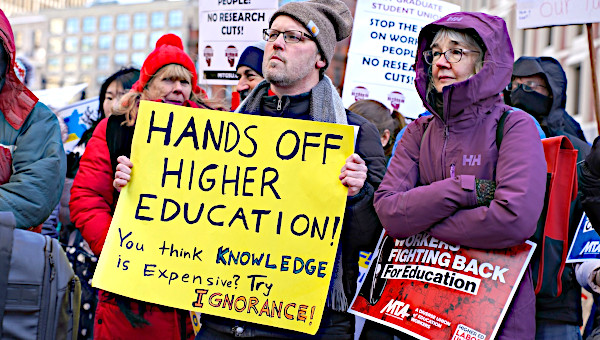CONTENTS
CALLS TO ACTION
Secure federal child care funding
With news that the Government of Canada has invited provinces and territories to sign 5-year extensions to the Canada-Wide Early Learning and Child Care (CWELCC) funding agreements, we are writing to urge you to sign on immediately to secure continued federal child care funding for Ontario’s $10aDay plan.These offers to extend federal funding are welcomed, as communities, provinces and territories, and advocates have been asking for ongoing funding stability.
The $10aDay child care plan has been a game changer for Ontario children and families, and research shows it is already making a difference for our economy. At a time of economic uncertainty, the continuation of the $10aDay plan will provide much needed stability to Ontario families, to the child care sector, and to our local economies.
docs.google.com
EVENTS
Toronto Loves City Workers
When: March 6th, 5pmWhere: Masaryk-Cowan Community Recreational Centre
30,000 CUPE 79 members provide crucial public services. They are fighting for decent work and wages (they have lost 12% of the value of their wage due to inflration). These workers are also fighting for proper staffing levels to ensure Toronto residents get the services they need, when they need them. A majority of CUPE 79 members are women and racialized workers. It is crucial they are treated fairly. But as it stands, 12,000 of them (40% of the membership) earn the minimum wage, which is not enough for anyone to live on. These workers should not be forced out on strike for livable wages and decent work.
Better TTC information and signs
When: Thursday, March 6th, 6:30pm-8:00pmWhere: 720 Bathurst (CSI Annex) – 2nd floor
Do you find it confusing to navigate around the TTC? Are you frustrated by the lack of up-to-date schedule information on trip planning apps and the TTC website?
Join TTCriders to help plan our campaign to improve TTC information and signs. The TTC is creating a new “wayfinding” strategy, and we want to shape it and make sure that it is funded in the 2026 budget.
ttcriders.ca
Vulnerable Communities and Climate Justice
When: March 6th, 7pmWhere: Innis Town Hall, 2 Sussex Ave
The wealthiest are the largest contributors to greenhouse gas emissions, but it’s marginalized and working-class communities that bear the brunt of climate impacts. Join us for a panel discussion on the unequal burden of climate change, examining how vulnerable communities are disproportionately affected and how they will play a key role in advancing a fair, inclusive transition. We’ll also explore why some voices have been left out of environmental movements and how we can create pathways to inclusive climate action.
Panelists: Angele Alook (York University, School of Gender, Sexuality and Women’s Studies), Geoff Dembicki (The Petroleum Papers: Inside the Far-Right Conspiracy to Cover Up Climate Change), Zamani Ra (Founder of CEED Canada), and Matthew T. Huber (Climate Change as Class War).
eventbrite.ca
Race, Labor, and the Political Fractures of Climate Actions
When: March 7th, 3pmWhere: Trinity College, 6 Hoskin Ave
Join scholars Matt Huber and Myles Lennon as they examine how class and race shape climate politics through labor and racial struggles.
eventbrite.ca
International Women’s Day
When: Saturday March 8th, Rally 11am; March starts at 1:00pmWhere: Auditorium, OISE, 252 Bloor Street W.
Fighting for Our Lives. Building Our Resistance.
Rally and March organized by Women Working with Immigrant Women and IWD Toronto Organizing Committee.
iwdtoronto.ca | Facebook event
Cafe Cuba
When: March 8th, 4pmWhere: 290 Danforth Ave
Public meeting and fundraiser. Help us raise money for the Che Guevara Brigade scholarship.
Facebook poster
Canadian Foreign Policy Hour with Yves Engler
 When: Mondays at 6pm
When: Mondays at 6pmJoin author Yves Engler on Mondays for a weekly news roundup and interactive discussion about Canada’s role abroad. This weekly session will delve into the latest developments on subjects ranging from military affairs and Canada’s role in Ukraine to its contribution to Palestinian dispossession, and the exploitation of African resources. Join Yves for a critical take on Canada’s foreign policy. Questions, comments, and criticisms are all welcome.
zoom.us
Workers On Film
When: March 11th, 7pmAn Evening with Glen Richards and Laura Sky.
Two of Canada’s leading documentary filmmakers will join us to discuss their impressive careers filming working people and struggles for social justice.
mailchi.mp
Healthcare, Housing and Hate in Hamilton
When: March 12th, 6pmWhere: 51 Adair Ave, Hamilton
Join the Hamilton and District Labour Council Education Committee and Hamilton Solidarity Network for an evening discussion about solutions to the healthcare and housing crisis and how to push back against attempts to scapegoat immigrants and refugees for these problems.
Panelists include:
– Kim O’Hearn – healthcare worker and CUPE 7800 exec member
– Joan MacNeil – member Unitarian Congregation and housing activist
– Others TBA.
FilmSocial: Kneecap
When: Wednesday, March 19th, 6:45pmWhere: Eyesore Cinema, 1176 Bloor St W.
The Leo Panitch School for Socialist Education is very pleased to present the award winning movie KNEECAP as the latest installment in the ongoing FilmSocial series.
In keeping with the work of the Leo Panitch School, this film is a riveting political story of the fight for Indigenous language rights, for justice and against occupation. It is also a hilarious, satirical commentary on life today in the North of Ireland, which the movie captures quite brilliantly.
tickettailor.com
Online edition: Fighting to Win
Fighting to Win: Social Struggles, Containment, and Effective Resistance (online edition)Fighting to Win is a 12-week course with former OCAP organizer John Clarke, hosted by the Leo Panitch School for Socialist Education.
This edition of the course will be taking place exclusively online via Zoom. Those based in Toronto, Canada, are invited to join us for the next in-person edition of the course later in 2025.
The course will begin in April 2025 and will take place over 12 weeks on Saturdays at Noon (EST/EDT).
docs.google.com
ARTICLES
Trump’s Authoritarian Assault on Education
 By Henry A. Giroux
By Henry A. GirouxIn the initial days of his second term, US President Donald Trump issued several executive orders “seeking to control how schools teach about race and gender, direct more tax dollars to private schools, and deport pro-Palestinian protesters.” On January 29, 2025, he signed the “Ending Radical Indoctrination in K-12 Schooling” executive order, which mandates the elimination of curricula that the administration deems as promoting “radical, anti-American ideologies.” This executive order is not just an attack on critical race theory or teachings about systemic racism – it is a cornerstone of an authoritarian ideology designed to eliminate critical thought, suppress historical truth, and strip educators of their autonomy.
Source: The Bullet No. 3102
Exposing the Big Con: The False Promise of Artificial Intelligence
 By Martin Hart-Landsberg
By Martin Hart-LandsbergThe leading big tech companies are working hard to sell artificial intelligence (AI) as the gateway to a future of plenty for all. And to this point they have been surprisingly successful in capturing investor money and government support, making their already wealthy owners even wealthier. However, that success doesn’t change the fact that their AI systems have already largely exhausted their potential.
Source: The Bullet No. 3103
Israel’s West Bank Escalation Underscores the Urgent Need for a Full Arms Embargo
 Canadians for Justice and Peace in the Middle East (CJPME) emphatically demands that Canada urgently impose a comprehensive arms embargo on Israel amid its current military escalation and ethnic cleansing in the occupied West Bank. Israel ramped up its attacks on the West Bank immediately following the ceasefire agreement in Gaza, and this week deployed tanks for the first time since the early 2000s. Promising to apply lessons from its genocidal war in Gaza, Israel has forcibly expelled over 40,000 Palestinians from refugee camps and announced that they will not be able to return to their homes for at least a year. CJPME believes that Israel’s actions are in preparation for the full annexation of the territory, requiring immediate intervention.
Canadians for Justice and Peace in the Middle East (CJPME) emphatically demands that Canada urgently impose a comprehensive arms embargo on Israel amid its current military escalation and ethnic cleansing in the occupied West Bank. Israel ramped up its attacks on the West Bank immediately following the ceasefire agreement in Gaza, and this week deployed tanks for the first time since the early 2000s. Promising to apply lessons from its genocidal war in Gaza, Israel has forcibly expelled over 40,000 Palestinians from refugee camps and announced that they will not be able to return to their homes for at least a year. CJPME believes that Israel’s actions are in preparation for the full annexation of the territory, requiring immediate intervention.Source: The Bullet No. 3104
EMPLOYMENT
Publicity, Promotions, and Marketing Manager
Between the Lines is seeking a Publicity, Promotions, and Marketing Manager to promote our books to the media, the public, and academics, and contribute to the general administration of the press.This is a hybrid position with a mix of remote and in-person work at our office at 401 Richmond, a restored heritage building turned arts-and-culture hub in downtown Toronto.
This is a full-time permanent position of four days per week (Mon–Thurs). The gross annual salary for this position is $51K per year, and this rate increases for cost of living annually each November.
Please send a cover letter and resume as a single document in PDF format to info@btlbooks.com by Thursday, April 3, 2025. Please include “Publicity, Promotions, and Marketing Manager” in the subject line.
btlbooks.com